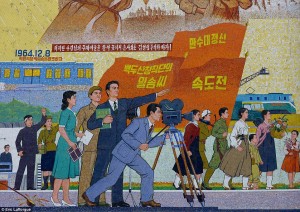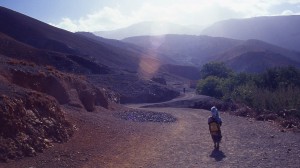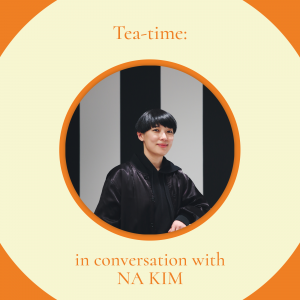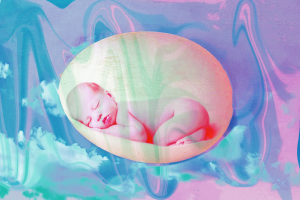“If they see you, they shoot”: An Interview with a North Korean Defector
by Alexander Walker | May 6, 2015
‘If they see you, they shoot’. Jung tells me about the soldiers stationed every 60 metres along the border he crossed to leave North Korea. ‘My mother was very afraid to leave’ he says, and it is not hard to see why. I meet Jung in a coffee shop in the heart of Seoul, just down the road from where he goes to university. He left North Korea in 2003 along with his mother, father and sister. Sitting across from me in his leather jacket clutching an Americano he tells me about one of the reasons they tried to escape, the notorious famine that ravaged the country during the 1990s, or, as he puts it, ‘the very difficult time’. He also mentions education as an important factor. ‘Although I had skills in Maths, and some other subjects, I could not go to a good university because my family background was not good’, he laments. . Without familial prestige to improve his son’s future, Jung’s father became increasingly frustrated with North Korean society. . As an electrician he had had the opportunity to do supervised work in China. ‘My father brought back a mini radio, it was made for North Koreans, but he fixed it so we could listen to South Korean channels. We all listened together.’ Through his ‘fixed’ radio Jung’s father extended his awareness of the world outside the Democratic People’s Republic to his whole family, and they decided to try and leave permanently. Every year would-be defectors attempting to cross the border are shot on sight, but the family managed to reach China safely. Jung finishes the story of his journey to the South ‘we stayed in China for four months, looked after by a missionary from South Korea. Then we went to Burma because it was much easier to stay there than in China.’ It was easier to make the journey to South Korea away from the prying eyes of the Chinese authorities that send refugees back into the North if they are caught.
Like Jung, many of the North Koreans who succeed in leaving come to the South. They arrive to a world of sprawling international development where people cruise to work along the complex web of subways, clutching a Starbucks, eating a Dunkin’ Doughnut. Seoul is the megacity capital of the twelfth largest economy in the world, its skyline a jagged glass silhouette jutting towards the smoggy clouds. The streets of Gangnam are lined with Lamborghini garages and Dolce and Gabbana outlets. Itaewon is home to an enormous US military base, its nightclubs and bars are filled with rowdy Americans, over whom the South Korean police have no jurisdiction. Even with the limited knowledge of life in North Korea we have it is not hard to see the immense contrast. Recent photographs of Pyongyang show a city trapped in the past by its ailing economy. Soviet-style apartment blocks are amongst their tallest buildings, instead of flickering neon the billboards display government propaganda reminiscent of the revolutionary rhetoric of 1950s China. Undercover documentary-makers have caught glimpses of abandoned rural market places and hospitals with no patients in them.
Somewhat remarkably, given the cultural and political chasm that separates the two halves of the peninsular today, a unified Korea is still within living memory. The country experienced brutal Japanese colonial rule between 1910 and 1945 before being divided in the wake of the Second World War. Further conflict ensued; by the end of the Korean War in 1953 a third of the population was homeless, and the country’s infrastructure was virtually obliterated. Korea had suffered as one nation for half a century and the whole country emerged in a dire state. North and South were differentiated at this point only by their nominal form of government, and an arbitrary border drawn onto a map.
Despite their common heritage and shared suffering, when destitute North Koreans manage to make it to the South today they are rarely welcomed. Jung spoke of the struggle his family encountered once they made it to Seoul: ‘the South Korean government gave us some money, but it was not enough to live’, he says. One of the main reasons his father had decided to leave the North was so that his academically able son could progress educationally. ‘Many South Koreans go to private institutes for education. I couldn’t go, it was very hard for me to follow the class. I was older than my classmates but it was still hard for me to understand.’ His frustration is evident. Coming from an educational environment that focuses predominantly on ideology rather than literacy and numeracy many North Korean defectors struggle in the immensely competitive South Korean system. Jung told his class-mates about his North Korean background. Most treated him with a curiosity appropriate to someone from a strangely foreign land. But there were some who had ‘a very bad attitude’. Jung recounts, ‘they would say to me: ‘go back to your own country’’; they treated him with little respect because of his background, and targeted him for being North Korean. He found this particularly difficult to handle, being older than his peers in a society that traditionally respects age, and was consistently involved in physical fights. ‘We came to South Korea so I could study and I couldn’t study in this situation’.
Jung and his family are far from alone in facing prejudice and difficulty in the South. Daily NK, an online newspaper set up by both North and South Koreans, run a ‘Defector Success Stories’ section. Their stories are a catalogue of first-hand accounts of triumph over adversity, but it is striking how much of the adversity stems from South Korean prejudice. We are told that many South Koreans respond with laughter or disdain to North Korean accents and with condescending amazement at their employment. North Korean defectors are more than four times more likely to be unemployed than their South Korean counterparts whilst their average monthly pay is only 1.2 million Korean won (£ 742) compared to a national average of 5 million won (£3,100). Although the interviewees are overwhelmingly positive about their current circumstances, past experiences of long hours in often menial work, coupled with these statistics, speak for themselves. Jan Jin-sung, in his book Dear Leader, summarises the disparity between North Korean expectation and the reality of the South Korean mentality. On the run in China he spent his last few yuan on phone calls to the South Korean consulate in Shenyang requesting asylum. He was told ‘we can’t help you here’, but that he would have to journey unaided to Beijing to claim assistance. After asking for advice on how to get there, the employee responded ‘all the other refugees make it their on their own.’ Jan Jing-Sung simply writes, ‘but we were both Koreans, he and I!’
The prejudice experienced by North Koreans in South Korea, coupled with South Korea’s increasing ambivalence towards reunification, may come as a surprise given the nations’ long shared history. When I ask Jung what nationality he considers himself he immediately responds ‘South Korean’, before reaching for his wallet and pushing a little pink card with his name and grainy black and white photo on it across the table. Thinking he may be responding in a purely bureaucratic sense I pose the question of whether he sees the North and South as two separate nations or one country waiting to be re-joined again. ‘The only thing that is the same is the language,’ he says, ‘Many things are different, they think differently, they see differently, everything is different.’




